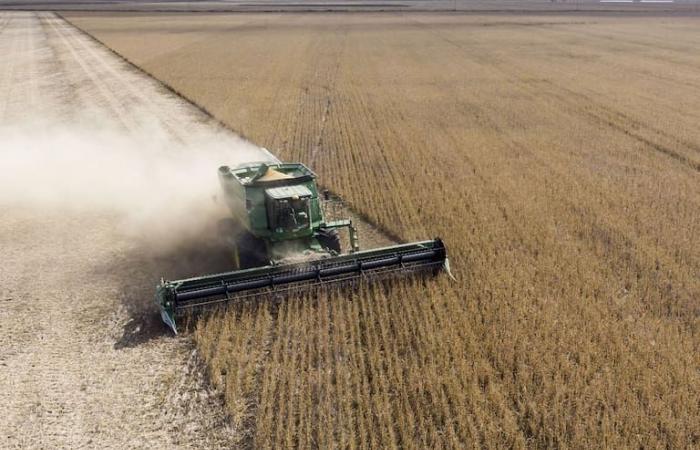
Hear
In the midst of the economic situation in the country and, among other factors, a complicated panorama left by the drought of 2023, multinational agricultural machinery companies operating in the local market are experiencing sales that are down between 40 and 50% compared to historical volumes and 20 to 30% in units versus the last year. Sergio Fernández, president of the Association of Argentine Tractor Factories (AFAT), In the 50 years of history of the organization this is one of the “more challenging” for the industry, aggravated by a strong tax pressure that “penalizes” manufacturing and export.
“In these 50 years we have faced many challenges at the country and global levels. Today we are once again facing a very big challenge as an association and as a country. We are in a year in which the industry is really very down. It is one of the lowest years in sales volume of the last 20 years, with 20 and 30% fewer units than last year and at the same time with a very strong and distorting tax pressure that obviously complicates and penalizes manufacturing. and also export”mentioned the president during his speech at a lunch celebrating the 50 years of AFAT, an event that included the participation of national officials and representatives of multinationals.
Fernández highlighted that this occurs in a context of uncertainty that characterized the beginning of the year, due to the change of government and outstanding debts due to the previous drought, in addition to concern about the exchange rate, the PAIS tax and less favorable prices. of commodities. “With limited margins and uncertainty, the producer loses the spirit of investing in capital goods,” he said.
On the other hand, he spoke about the challenges in renewing the machinery park and the need to strengthen the industry: “We have a park already bordering on obsolescence. We see that there are 70 to 80% of tractors that are more than 15 years old and the same percentage of combines that are more than 10 years old and today technology advances very rapidly.”.
“A new combine today has harvest losses of almost 15-20% less than one that is 20 years old. This means that all those grains that remain in the field could be exported having that technology or that new machine that is not obsolete. Obviously, renewing that park and incorporating technology is another part of the path towards efficient and sustainable agriculture for our country,” he added.
However, he was optimistic about the future. Strictly speaking, when thanking the officials present, among them Fernando Villela, Secretary of Bioeconomy, and Esteban Marzorati, Undersecretary of Foreign Trade, for having been at the event, He also told them: “We know what we are experiencing will be solved. We are in a bad year, but suddenly starting with all of you we feel very well treated, very well received, with the same vision and with the desire to solve the problems. And we know that’s how it will be.”
He emphasized the strategic importance of Argentina in global food security: “Everyone knows that in the year 2050, 40% more food will be needed in the world. And there is no possibility, there are no resources to produce them in the way we are doing it. That is why we have to optimize resources, we have to be much more efficient and our companies see that because they have a long-term strategy.”
He added: “Argentina needs investment in infrastructure, an improvement in logistics at the national level, such as lowering the internal costs of transporting the harvest to ports, roads, waterways, railways, investment in irrigation, connectivity.”
In terms of innovation, he highlighted the commitment of AFAT companies to technology: “We have to continue incorporating technology and AFAT companies have been investing millions of dollars per day in research and development to develop technology to do what we know as “digital agriculture, meaning precision agriculture managed by data.”
In relation to suppliers, he highlighted the importance of raising standards to compete globally: “We have many suppliers with a lot of potential, but who still do not reach the quality and cost standards for exporting.. This is not solved simply with a devaluation, a more competitive dollar; Other things are needed, processes, procedures, standards, policies to be able to become a world-class supplier.”
As he stated before the officials, the president of AFAT assured in dialogue with this medium that for next year they are “optimistic.” In that sense, he indicated: “Next year, with greater predictability in terms of the macroeconomy and a more comfortable and less distorting tax pressure, I believe that things will begin to fall into place and that the values of the industries will return to be similar or a little higher than last year.”
“Funding is starting to become more accessible with promising tools, which will also be a big help for next year,” he added.
He concluded: “As next year we see it in recovery, then obviously we have to reduce hours [de producción]. We cannot manufacture for stock because it is a separate cost, and we are also having some suspensions of people, but we are not getting rid of it because we see that a recovery is coming.”





